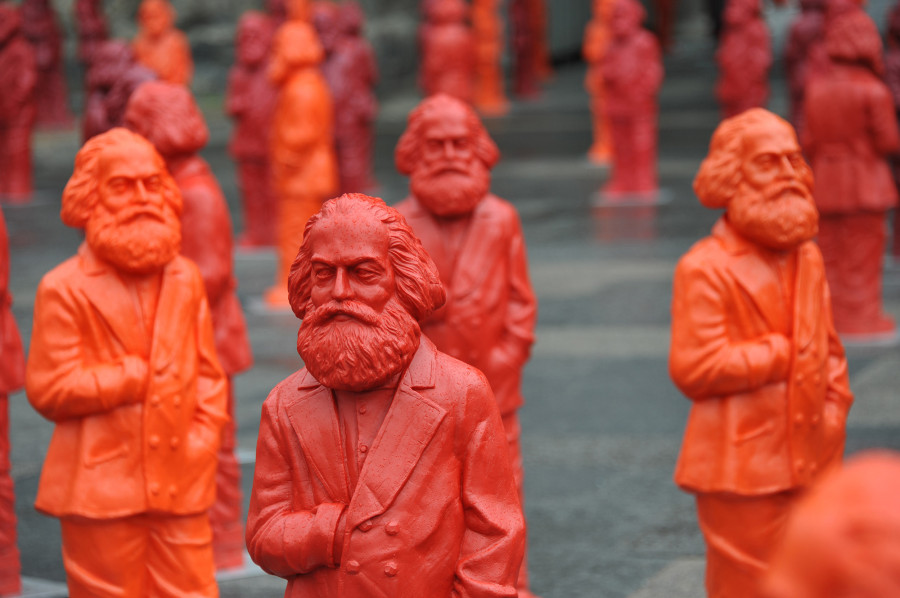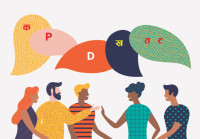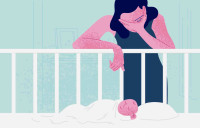As it is
Communist manifestation
Should we redefine communist principles and politics or is our communist movement doomed to failure?
Mohan Guragain
In the first parliamentary elections after the restoration of democracy in 1990, communists did not emerge as the biggest party in Nepal. But they made their first impressive presence—as people’s representatives. One mass meeting, supplemented with cultural performances, was capable of turning a whole village into communist sympathisers.
In the very early years of democratic restoration, however, communists were misconceived. Still remembered vividly for their Jhapa Naxalite movement, for lynching feudal landlords, there were many who feared them.
But in the many rural villages of Nepal, many leftist cultural workers had mingled with people so well that even in night vigils after puja, people sang and danced to revolutionary songs. Local communist literature or works that had been translated into Nepali from other languages made for popular reading. The popularity of the firebrand communist leader Madan Bhandari was soaring: on social gatherings, villagers played loud the recordings of the communist general secretary’s speeches.
New leadership emerged after Bhandari’s tragic, mysterious death in a car accident in his heyday. Meanwhile, for the Congress-led government, two-and-a-half years had made the party of prime minister Girija Prasad Koirala greatly unpopular. This turned the tide in favour of the Unified Marxists Leninists.
The revered communist leader Manmohan Adhikari then became the prime minister. To counter popular misgivings, he introduced old-age allowances and implemented the immensely popular ‘develop your own village’ programme. This minority government of the largest party only lasted nine months but its fame lives till date, 25 years on. In fact, the impressions it made on the popular psyche have not been removed even by the communist government of today that commands a nearly two-thirds majority in Parliament and has been around for more than two years.
But today, the communists no longer inspire the masses. They have set all the bad examples. They are demonstrating the very traits that they had so painstakingly fought against during the partyless days. They have stopped living by the ideals they instilled in their followers.
They have made a public mockery of their ideals and principles. Take for instance, how politicians, who were defeated in popular vote, were directly nominated for National Assembly seats one after another. Then there is the talk of amending the constitution so that the discredited Bamdev Gautam can go to the upper house and ultimately be appointed prime minister.
Our communists today are embroiled in almost unimaginable crimes and malpractices—land scams, trade in education and health, commissions, corruption, immorality, indulgence in wealth, pomp and love for the rhetoric rather than work. While they get into controversies for all the wrong reasons, they have also grown highly intolerant of criticism.
The very charismatic Puspa Kamal Dahal, or Prachanda, who could once mobilise masses with one speech, has perhaps been the biggest disappointment. His rebel militia, who would once have given their life for him during the decade-long Maoist insurgency, now view the same Prachanda with hatred for his life of luxury. Prachanda today roams around in a helicopter and takes refuge in resorts whenever he is in need of some solace after a hectic schedule. Prime Minister Oli’s self-proclaimed aversion to corruption only sounds like lip-service when he is widely perceived to be surrounded by a corrupt bunch of people who command party and state affairs.
These activities have greatly discredited the communist party, whom people showed great trust by giving it an overwhelming majority. Even party cadres are openly criticising their leadership for this blatant violation of principles.
Our communist movement has been so badly exposed that even the ordinary farmer or factory worker can’t trust the government. The common citizen is no longer assured that s/he can get their children good affordable education and they can have accessible healthcare. Since there is no investment in rural areas, people are being robbed of their livelihoods and compelled to migrate.
At this rate, should we redefine communist principles and politics or is our communist movement doomed to failure? Have we spared the political process through which a little known figure can rise and demonstrate great mobilising skills? Or will we revise our costly electoral system to save public faith in democracy?
From grassroots level, people today are running after the communist party not because they love its principles but because they have vested interests. This affiliation can bring to them profitable opportunities. At the higher level too, people are engaged in politics so they might get lucrative state positions. How will this relation of sheer greed for money and power leave politics for the new generation?
This erosion of ideals will only alienate the common people from politics and lead them to view their leaders with scorn and suspicion. When people harbour feelings that the rulers are not serving their interests, politics no longer represents the ground reality. It only becomes a hoax. Politics, even that of communists, loses steam when it no longer has the backing of the common folk.
Not driven by the manifesto anymore, what communist politics has come to symbolise in Nepal is deeply distressing.




 11.12°C Kathmandu
11.12°C Kathmandu










